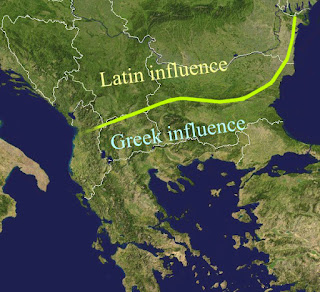გამარჯობა
Meeting people in Georgian.
გამარჯობა
Ich gehe meistens früh ins Bett.
I go to bed early most of the time.
Τις περισσότερες φορές πηγαίνω νωρίς στο κρεβάτι.

The Sumerians were pioneers of civilization in ancient Mesopotamia. Through their invention of cuneiform writing, we’ve gained incredible insight into their lives, beliefs, and innovations.
Sumerian society had a rich pantheon of gods, structured governments, and advanced technologies for agriculture and construction. Their legacy lives on through architecture, math, astronomy, and the foundations of written language.
Note: Sumerian is an extinct language. Our modern understanding is reconstructed through extensive archaeological research.
Khaíre! (sg)
Greetings
Khaírete! (pl)
Greetings
Khaīre, ō fíle!
Greetings, o friend!
Khaīre, Kaīsar!
Hail, Caesar!
Khaīre kai ygíaine
Greetings and good health
Paulos epesteile phrasai khaírein.
Paul says hello. (He sends greetings)
Aspázdomai
I kiss you.
Pō̂s ékheis?
How are you doing?
Ékhō kalō̂s.
I'm fine.
Erroso
Be well
Kairòs dé!
Long time no see.
Hygíaine! (sg)
Good health
Kaì sýge!
You too!
Hygiaínete! (pl)
Good health
Eukhomai se ugiainein
I pray you to be well.
Hypíaine! (sg)
Goodbye
Hypiaínete! (pl)
Good health
Eutukhei
Be prosperous!
Eutukheite
Be prosperous!
Read also: Meeting people in Ancient Greek
Kazakh is a Turkic language of Central Asia native in Kazakhstan , western China (Xinjiang Province) Uzbekistan and Kyrgyzstan.
It is spoken in countries of the ex Soviet Union like Russia (4 hundred thousand) as well.
It belongs to the Kipchak branch of Central Asian Turkic languages.
It is estimated that a total of about 13.5 million people speak it .
Kyrgyz is a sister language of Kazakh. They are basically two different registers of the same language differing in phonology mainly and the literary language . Like the case of Hindustani with Hindi and Urdu.
Both used Chagatai Turkic as a common literary source in the past.
There is a low degree of mutual intelligibility between Kazakh and Turkish unlike Turkish and Uzbek.
Romanian is a Balkan Romance language derived from Vulgar Latin spoken in the Balkan Peninsula north of the Jirecek line during the times of the Roman Empire.
 |
| The Jireček line. |
It's closest living relatives are Aromanian (Greece, Albania,North Macedonia) ,Istro-Romanian (Croatia) and Megleno-Romanian at the border between Greece and North Macedonia.
Romanian is called limba române in Romanian.
It is spoken mainly in the countries of Romania and Moldova and by Romanian diaspora in Europe and around the world.
It is estimated that Romanian is spoken by more or less about 30 million people as a first and second language.
Russian is an east Slavic language spoken in a vast geographical area by about 260 million people as a first or second language mostly in Russia and the ex-Soviet countries.
Large Russian speaking communities can also be found in Israel and Mongolia.
Russian came from the language that was once spoken in Kievan Rus, a confederation of Slavic tribes ruled by the Scandinavian dynasty of the Rurikids.
The dynasty was founded by Rurik ,a Varangian (Viking) prince from Scandinavia.
It is closely related to Ukrainian, Belorusian and the Rusyn language in Eastern Europe.
Christmas and New Year wishes in Russian.
At the Ticket Counter:
— Ένα εισιτήριο για Θεσσαλονίκη.
— Μετ' επιστροφής;
— Όχι, μόνο για εκεί.
— Δεκαπέντε ευρώ.
— Δέχεστε πιστωτική;
— Ναι, βεβαίως.

Dive into the fascinating world of hieroglyphics with this fun, educational keyboard app.
Install now and start typing with ancient symbols!
Available on Google Play • Updates automatically
Ready